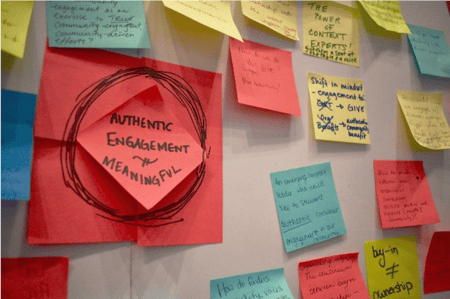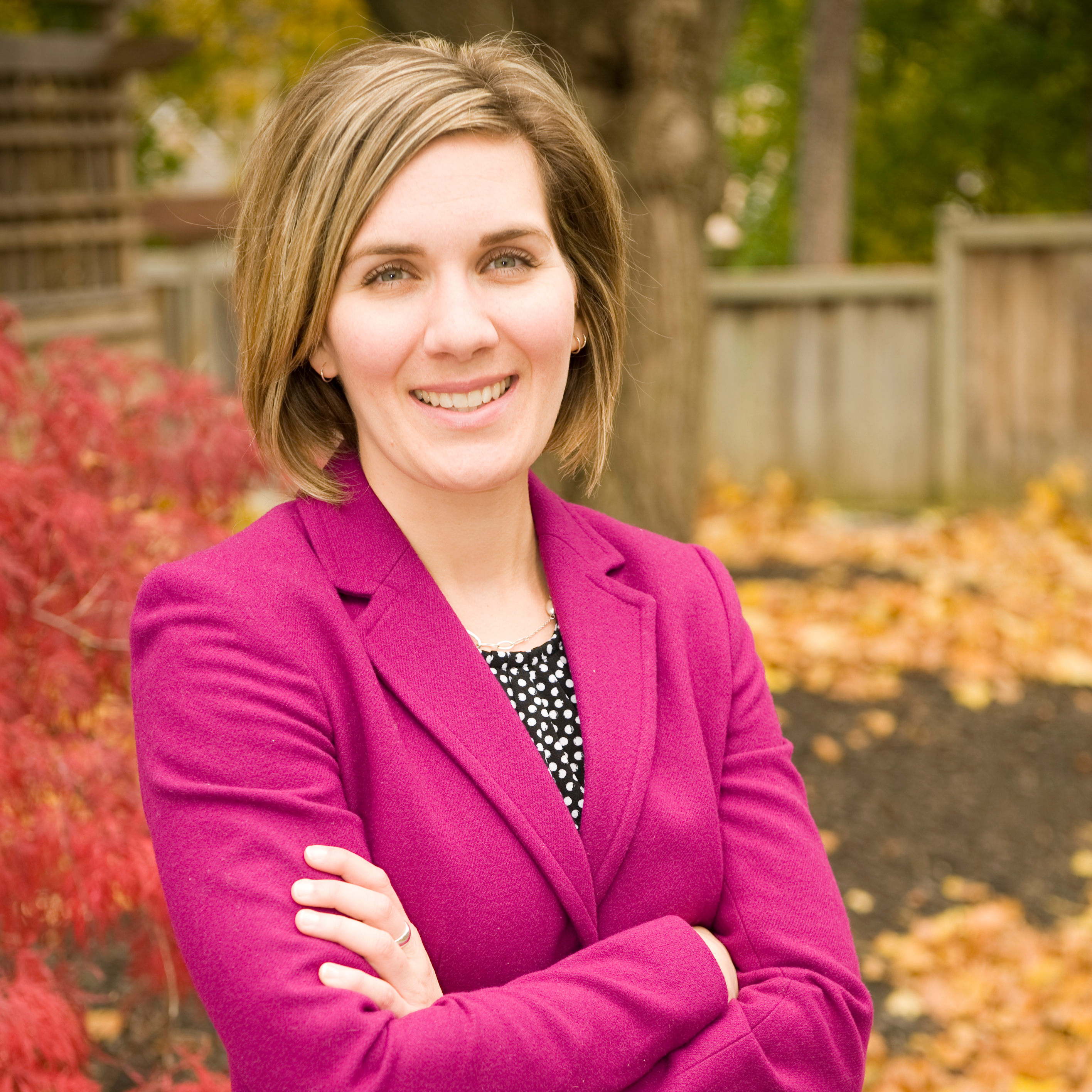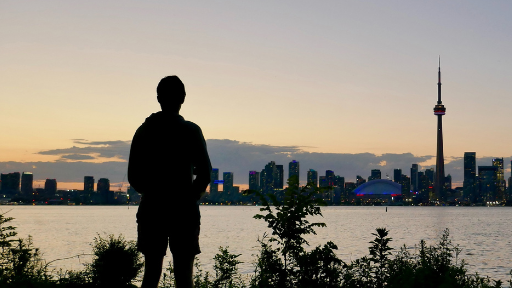 I’m coming around to the idea that you can, in fact, respond to a question with another question, and still find valuable answers buried within.
I’m coming around to the idea that you can, in fact, respond to a question with another question, and still find valuable answers buried within.
Hear me out.
At work, our Founder and Director of Vibrant Communities, Paul Born, encourages me to continually ask questions, even if it means creating version eight or nine of a document I’m working on! Sure, this often feels like an endless cascade of twisting, turning questions, but this technique gets at the heart of the messy, imperfect work of poverty reduction. It reminds us that there are multiple ‘right’ answers to the complex questions we’re tackling.
As Tamarack’s Manager of Learning, I was keen to collect the questions attendees posted to our Learning Wall at our Poverty Reduction Summit on September 18 and 19. Alongside energizing speakers and a palpable buzz in the room, attendees shared thoughtful questions that felt equal parts impatient, passionate, frustrated and determined.
There were the questions about ensuring a broad range of perspectives around the table:
- How do we build trust and meaningfully engage community members, governments, like-minded organizations and people with lived and living experience of poverty?
- How can local poverty reduction efforts support federal efforts and vice versa?
And ones about how to organize and advance the work of local poverty reduction roundtables:
- How do we move forward with actions in the short-term when we haven’t figured out the long-term strategy?
- How do we sustain funding for our work?
- Where do we start?!
And then there were the ones that can sometimes feel uncomfortable, but are so critical to ask:
- How do we reduce the stigma and restore dignity for those who suffer from poverty?
- How best can we address poverty in key populations such as seniors, those with physical disabilities, women, youth and families with kids?
- Why are we still talking about poverty reduction when we should be focused on poverty eradication?!
In the room we had Cities Reducing Poverty members from across Canada, mayors, MPPs, federal bureaucrats and people with lived and living experience of poverty, all putting our heads together to begin to answer these questions.
One of the break-out sessions was on Developing a Common Agenda (one of the 5 conditions of the Collective Impact Framework) where participants took a deep dive into the Top 100 exercise - a method for identifying key influencers to get the right people at the table. And guess what came out of this exercise? That’s right, more questions. Specifically, the thought-provoking ones you’d ask top influencers:
- What’s happening now [in our community, with respect to poverty]?
- What’s the change we want to see?
- What can we do together?
In his presentation on impact evaluation, Mark Cabaj encouraged us to ask, what’s the meaning behind the data? And panelists sharing examples of social innovations challenged us to ask, what’s the disruptive innovation we can introduce in our communities to bring about the change we want to see?
So many good questions.
For those like me who left the summit with more questions than answers, I say – good. That’s what we need more of: reflection, learning and meaningful multi-sector collaboration to continue drilling down on questions that illuminate opportunities to work more effectively to lift Canadians out of poverty and perhaps, eradicate it once and for all.
Take Your Learning Further





